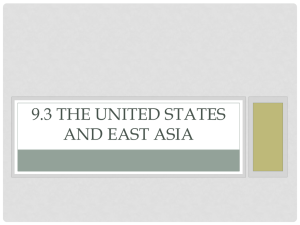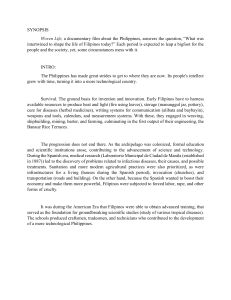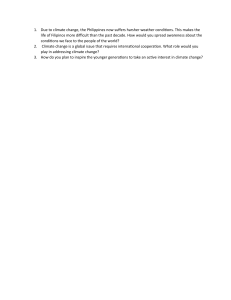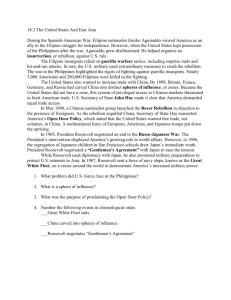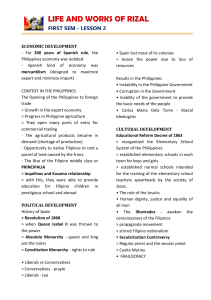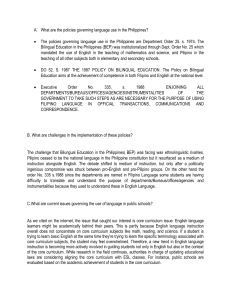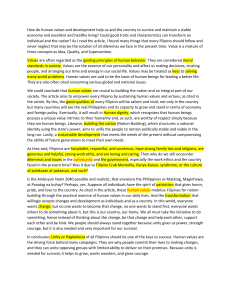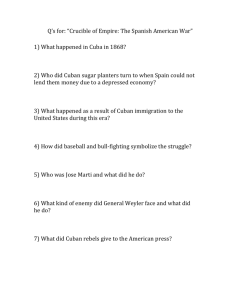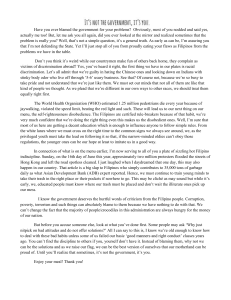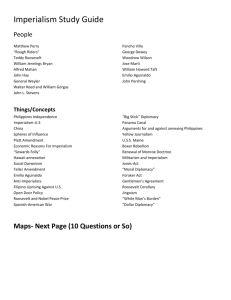1. After the Spanish American War, the U.S.A. decided... Philippines. Why did the U.S. government feel this was... THE UNITED STATES AND EAST ASIA
advertisement
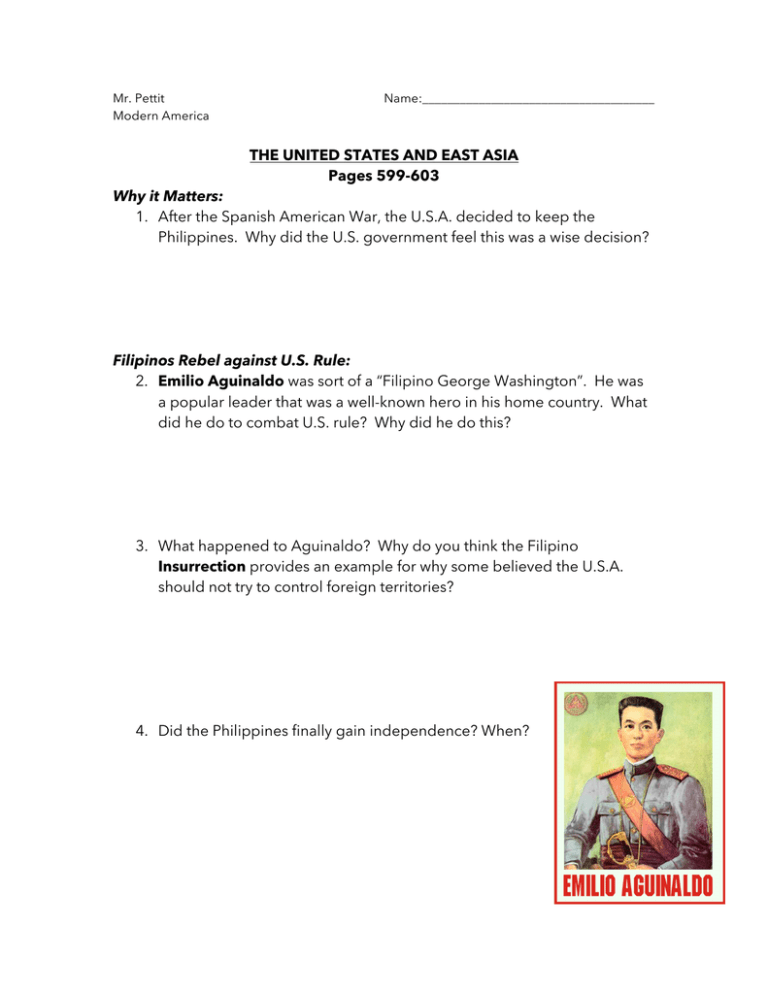
Mr. Pettit Modern America Name:_____________________________________ THE UNITED STATES AND EAST ASIA Pages 599-603 Why it Matters: 1. After the Spanish American War, the U.S.A. decided to keep the Philippines. Why did the U.S. government feel this was a wise decision? Filipinos Rebel against U.S. Rule: 2. Emilio Aguinaldo was sort of a “Filipino George Washington”. He was a popular leader that was a well-known hero in his home country. What did he do to combat U.S. rule? Why did he do this? 3. What happened to Aguinaldo? Why do you think the Filipino Insurrection provides an example for why some believed the U.S.A. should not try to control foreign territories? 4. Did the Philippines finally gain independence? When? The United States Pursues Interests in China: 5. China has a large population, how do you think this makes it an attractive market for foreign countries to export their goods? 6. Would it be accurate to say that the U.S.A. kind of felt “left out” when it came to trading with China? What evidence in your book supports your answer? 7. In response to increased influence from foreign nations, some Chinese people rebelled much like the Filipinos did after the Spanish American War. What was this event called? What role did the U.S.A. play during this event? 8. After this conflict, John Hay, the U.S. Secretary of State reminded other foreign nations of America’s, “Open Door Policy”. It was a way to make the other countries remember that the U.S.A. wanted equal trading rights in China and not____________________. What is the difference between these two types of influence? Tensions Rise Between America and Japan: 9. Unlike China and the Philippines, Japan had a more aggressive role in the world. They actually shared a similar goal as the U.S. What was this goal? 10. Japan grew angry with the presence of another foreign power in China. Which nation was this? What was the name of the conflict that resulted? 11. In 1905 President Theodore Roosevelt won the Nobel Peace Prize for his successful intervention during peace negotiations between Japan and Russia. While this was a huge accomplishment, It also concerned Roosevelt that Japan had become a competing world power. How do you think the Great White Fleet demonstrates his concern? The United States clearly seems to be taking a very interventionist approach to Asia and the Pacific. What do you think interventionist means? Do you see any potential for future problems with this approach? Why or why not?
